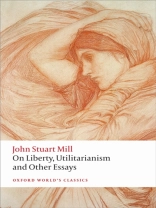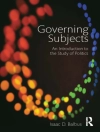‘it is only the cultivation of individuality which produces, or can produce, well developed human beings’Mill’s four essays, ‘On Liberty’, ‘Utilitarianism’, ‘Considerations on Representative Government’, and ‘The Subjection of Women’ examine the most central issues that face liberal democratic regimes – whether in the nineteenth century or the twenty-first. They have formed the basis for many of the political institutions of the West since the late nineteenth century, tackling as they do the appropriate grounds for protecting individual liberty, the basic principles of ethics, the benefits and the costs of representative institutions, and the central importance of gender equality in society. These essays are central to the liberal tradition, but their interpretation and how we should understand their connection with each other are both contentious. In their introduction Mark Philp and Frederick Rosen set the essays in the context of Mill’s other works, and argue that his conviction in the importance of the development of human character in its full diversity provides the core to his liberalism and to any defensible account of the value of liberalism to the modern world. ABOUT THE SERIES: For over 100 years Oxford World’s Classics has made available the widest range of literature from around the globe. Each affordable volume reflects Oxford’s commitment to scholarship, providing the most accurate text plus a wealth of other valuable features, including expert introductions by leading authorities, helpful notes to clarify the text, up-to-date bibliographies for further study, and much more.
John Stuart Mill
On Liberty, Utilitarianism and Other Essays [PDF ebook]
On Liberty, Utilitarianism and Other Essays [PDF ebook]
Koop dit e-boek en ontvang er nog 1 GRATIS!
Taal Engels ● Formaat PDF ● Pagina’s 608 ● ISBN 9780191649806 ● Editor Mark Philp & Frederick Rosen ● Uitgeverij OUP Oxford ● Gepubliceerd 2015 ● Downloadbare 3 keer ● Valuta EUR ● ID 4236279 ● Kopieerbeveiliging Adobe DRM
Vereist een DRM-compatibele e-boeklezer












